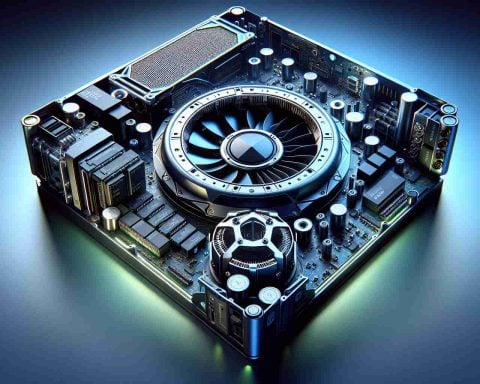In the race to make electric vehicles (EVs) more affordable and efficient, innovative strides are being made by tech startup DeepDrive GmbH, based in Munich. Their groundbreaking electric motor technology is generating significant interest in the automotive industry.
DeepDrive’s new dual-rotor motor is designed to be compact enough to fit within a wheel hub, a significant divergence from traditional motors that are typically located between the wheels and require axles to deliver power. This innovative design promises to reduce production costs while improving energy efficiency. The company is currently collaborating with several major automotive brands and has secured substantial funding, including a recent €30 million round led by a U.S. venture capital firm focused on decarbonization.
According to representatives from DeepDrive, this motor design could lower the cost of electric vehicles, making them accessible to a larger audience. With many new EVs priced over $50,000, the potential to create a more economically feasible option is vital for the market. Moreover, DeepDrive’s motors are said to achieve higher torque and energy efficiency than current models, allowing EVs to potentially travel over 800 kilometers on a single charge.
The company plans to start producing its revolutionary motors by 2026, and major players like BMW are already poised to begin testing their prototypes. This technological advancement could mark a significant turning point for the future of electric mobility.
Revolutionizing Electric Mobility: How DeepDrive GmbH is Shaping the Future of EVs
DeepDrive GmbH, a tech startup hailing from Munich, is making waves in the electric vehicle (EV) industry with its pioneering dual-rotor motor technology. This advanced motor innovation diverges significantly from conventional setups, offering numerous advantages that may transform the landscape of electric mobility.
Features of the Dual-Rotor Motor
The standout feature of DeepDrive’s dual-rotor motor is its compact design that allows it to fit inside the wheel hub. Unlike traditional electric motors that are positioned between the wheels and rely on axles to transfer power, this new setup simplifies the drivetrain architecture. By minimizing the number of components required, the design not only streamlines the production process but also reduces manufacturing costs.
This innovative motor solution boasts impressive specifications, including:
– Higher Torque: Enhanced torque output compared to current motor technologies.
– Energy Efficiency: Improved efficiency, aiming to extend the range of EVs by allowing them to potentially cover more than 800 kilometers on a single charge.
– Compactness: Its ability to fit within the wheel hub enables greater flexibility in vehicle design and structure.
Market Impact and Use Cases
The implications of DeepDrive’s technology extend beyond just performance. With many new electric vehicles priced above $50,000, there is an urgent need for cost-effective solutions to democratize access to electric mobility. By incorporating this technology, automakers can deliver more affordable EV models without compromising on quality. The ability to produce electric vehicles at lower costs enables a wider consumer base and encourages more sustainable transportation options.
DeepDrive is presently in collaboration with key automotive manufacturers, including industry giants like BMW, who are set to begin testing prototypes of this motor technology. This collaboration signifies strong industry interest and investment in transformative automotive technologies aimed at reducing carbon footprints.
Funding and Future Production Plans
Recently, DeepDrive secured a significant €30 million investment led by a U.S. venture capital firm dedicated to decarbonization efforts. This funding not only highlights investor confidence in the startup’s innovation but also underscores a broader industry trend focusing on sustainable transportation solutions.
Production of DeepDrive’s revolutionary motors is slated to begin in 2026, marking an essential milestone in the company’s journey and the advancement of electric mobility.
Pros and Cons of DeepDrive’s Dual-Rotor Motor
Pros:
– Cost Reduction: Potentially lower costs for manufacturers and consumers.
– Improved Efficiency: Longer travel distances on a single charge.
– Innovative Design: Compact, space-saving architecture enhances vehicle design flexibility.
Cons:
– Initial Production Scalability: Challenges may arise in scaling production to meet market demand.
– Adoption Timeframe: Transitioning existing models to incorporate new technology could take time.
Trends in Electric Vehicle Technology
The automotive industry is at a tipping point, leaning heavily toward electrification and sustainable practices. Innovations like those introduced by DeepDrive not only align with current market trends but also address consumer demands for affordability and efficiency in the EV segment. As the competition grows, we can anticipate accelerated advancements in electric motors, battery technologies, and overall vehicle design.
For more insights on trends in the electric vehicle industry, visit this link.













